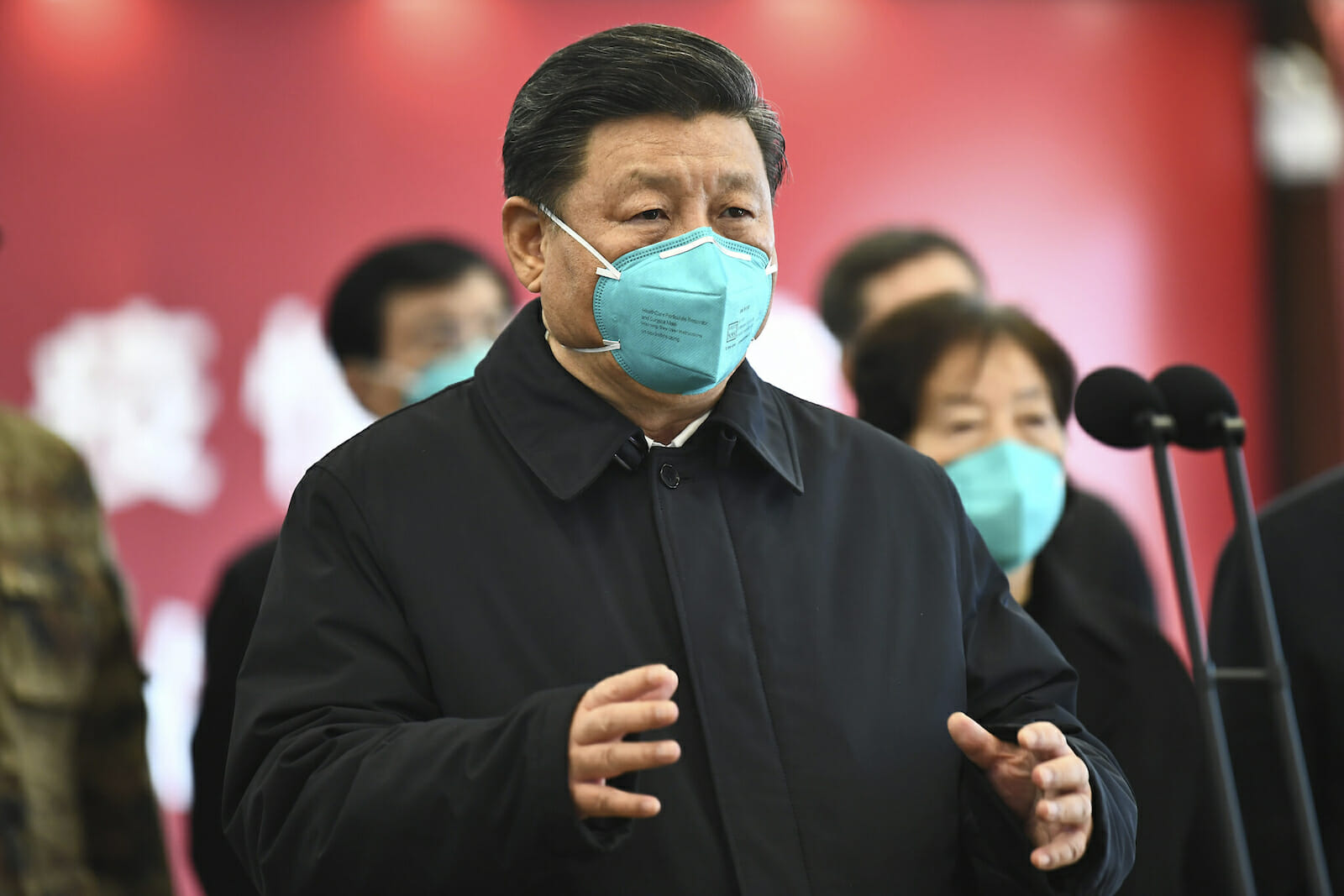
Virus May Damage China’s Grand Strategy
BEIJING, China – There are no signed documents. The agreement, or grand bargain, was not recorded in any physical form. But it shaped China, and through it the world. It was the cornerstone of Deng Xiaoping’s post-Mao Zedong reforms. Stay out of politics, the Chinese people were told, and the party will enrich you.
The Chinese Communist Party kept their side of the bargain, ensuring that the people had greater economic freedom and rising standards of living. It worked, beyond the party’s wildest dreams. More people benefitted over a shorter period than ever before in human history.
But President Xi Jinping, when he came to power in November 2012, believed that the party was getting soft. Too many cadres were used to the high life, had lost their moral bearing in a fog of cigar smoke and balloons of expensive French brandy as they celebrated another substantial bribe paid into their bank accounts.
The behavior, he realized, was costing the party credibility. He wanted to place the party back to the front and center of every aspect of daily life. To make it more relevant, even more intrusively so. He consolidated his authority in a power grab. As president for life, party head, and top military commander, Xi has centralized decision-making, abolished presidential term limits, jailed his opponents and promoted his loyalists. He also voiced his displeasure at the consumption of brandy. Sales dropped markedly. The trouble is people expect Xi, China’s “chairman of everything,” to fix everything when it goes wrong. And it has gone wrong.
Xi, the most powerful Chinese leader since Mao, must achieve two contradictory goals. Xi’s raisons d’être now are to eradicate coronavirus from China and bring the economy back to life.
The problem is the self-isolation that people are, it must be said, so far at least, willingly, constrained by. The quarantine can obviously curtail the spread of the virus but it damages economic output. There are signs of a sort of normality returning to Beijing but at least 90 percent of businesses and shops remain closed. People will recover from COVID-19, or the fear of getting it, long before economies do.
Then there was the initial inept response to the outbreak in Hubei province. It was astounding, almost comical. The denial, the lack of transparency, the outright lying and the bullying and silencing of whistleblowers. The use of drastic measures to cut off millions of people. The problem was it was actually implemented five hours after it had been announced that people would not be allowed to leave. This sparked an exodus, many people unknowingly carrying the virus into other provinces. In January officials in Hubei downplayed the public health threat so they could preside over two-party meetings and a Lunar New Year gala for some 40,000 families.
Once the outbreak is dealt with, that response will linger in the collective memory.
Since then, draconian measures including the lockdown of close to 60 million people in Hubei, now being replicated in Europe, were introduced. But the damage was done.
Global commerce depends, relies, is addicted to the fix of China’s $14.55 trillion economy. China had a great sales pitch. Single-party rule could deal with both short-term issues and long-term challenges more efficiently than democracies, hindered as they are by inquisitive legislatures. And of course, the size of the market was eye-watering. By 2022, 550 million Chinese will be able to call themselves middle class. This was meant to be the Chinese century.
Before the outbreak, China’s economy was growing, officially, at 6 percent but heading south. Introducing quarantine measures can help buy time. But it is a brief respite, weeks, at most a month or two. It can give governments time to seek solutions but they aren’t lasting solutions in and of themselves. What will growth in China be after the virus? Can the deal that shaped modern China be resuscitated? Or is the bargain that changed China and the world as useless as a discarded face mask?

